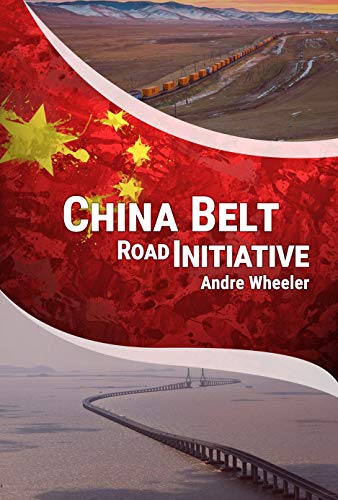New Belt and Road Book Offers Eurasian Logistics Insights

Review by Chris Devonshire-Ellis
Andre Wheeler has just published “China’s Belt Road Initiative: The Challenge For The Middle Kingdom Through A New Logistics Paradigm“. The book will be of significant interest to individuals and companies operating in the logistics field, and especially within China and its import-export routes. Wheeler details many of the issues faced by rail and marine in particular, and notes how the BRI has stirred up old rivalries and competitions, and what this means for future developments.
The author, based in Australia, has significant knowledge in this area too, having run his own consulting practice for 21 years dealing primarily with supply chain business and strategic planning particularly in the Asia-Pacific region, and within land use and marine supply base infrastructure and logistics, with especial experience within the engineering, mining and oil and gas industries throughout APAC. That background means this book is written from the technical perspective, and carries more weight that the typical armchair journalists so prevalent in the Belt and Road academic field.
To adequately describe the book, I will leave it to the author’s own words, who in his preface introduces his work as follows:
“Change is inevitable in the modern global economy, with technological breakthroughs announced almost daily. On a fundamental basis, organizations face the challenges of managing change for a sustainable outcome or simply run the risk of losing relevance. One such change is the implementation of the Chinese One Belt One Road (BRI). The focus on infrastructure and trade strategy improves global market connectivity, and in turn will shape trade routes. The BRI is based on China’s push for trade and energy security. It is increasingly disrupting the nature of business relationships within Eurasia, prompting the relocation of businesses to improve cost and value advantages.
Of particular interest is a new transport modal mix since shipping by sea is being challenged by improved road and rail networks. A chapter in the book is dedicated to how businesses must adjust logistical practice to meet these changes, or lose key markets. In particular, it looks at the changing nature of intermodal logistics as the pairing of ports with rail/road networks, making a new freight mix possible. All of these initiatives are building major connectivity infrastructure, including new inland rail corridors, which connect inland markets and new maritime ports. With increasing rail freight volumes between China and Europe, we see that the BRI is already impacting shipping lines, which are suffering significant losses, both in revenue and volume.”
Wheeler also provides an in-depth case study, the recently announced China/Myanmar corridor to showcase the issues around the BRI. For example, this corridor is seen as a response to the geopolitical issues encountered with India along the original Bangladesh/China/India/Myanmar Corridor. It also encapsulates the issues found along the BRI, such as security, geopolitical, and socioeconomic tensions.
Books written about China and certainly the Belt and Road from an engineering and logistics infrastructure perspective are rare. Andre Wheeler has produced a fine, if dry piece of work that more than adequately addresses the changes occurring and problems to be solved of rail and maritime logistics along the Belt and Road to China.
Andre Wheeler’s book China’s Belt Road Initiative: The Challenge For The Middle Kingdom
Through A New Logistics Paradigm is available in Kindle and paperback formats from Amazon, priced at $10.79 and $16.99 respectively. He is also active on LinkedIn.
About Us
Silk Road Briefing is produced by Dezan Shira & Associates. Chris Devonshire-Ellis is the practice Chairman. The firm has 26 years of China operations with offices throughout China, Asia and Europe. Please refer to our Belt & Road desk or visit our website at www.dezshira.com for further information.
 Related Reading:
Related Reading:
![]() India’s Silk Road Ambitions and China’s OBOR Intentions
India’s Silk Road Ambitions and China’s OBOR Intentions
![]() China’s Maritime Belt Road Free Trade Agreements In South Asia
China’s Maritime Belt Road Free Trade Agreements In South Asia





